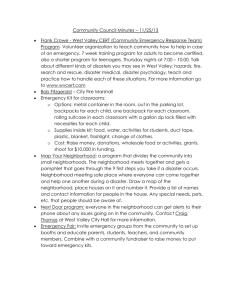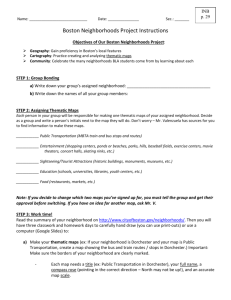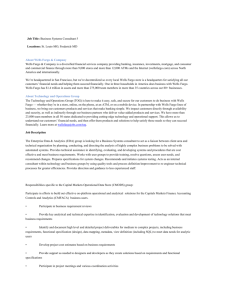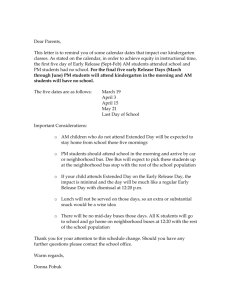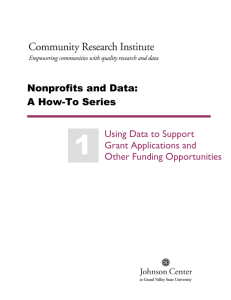ABSTRACT OF PROPOSAL
advertisement
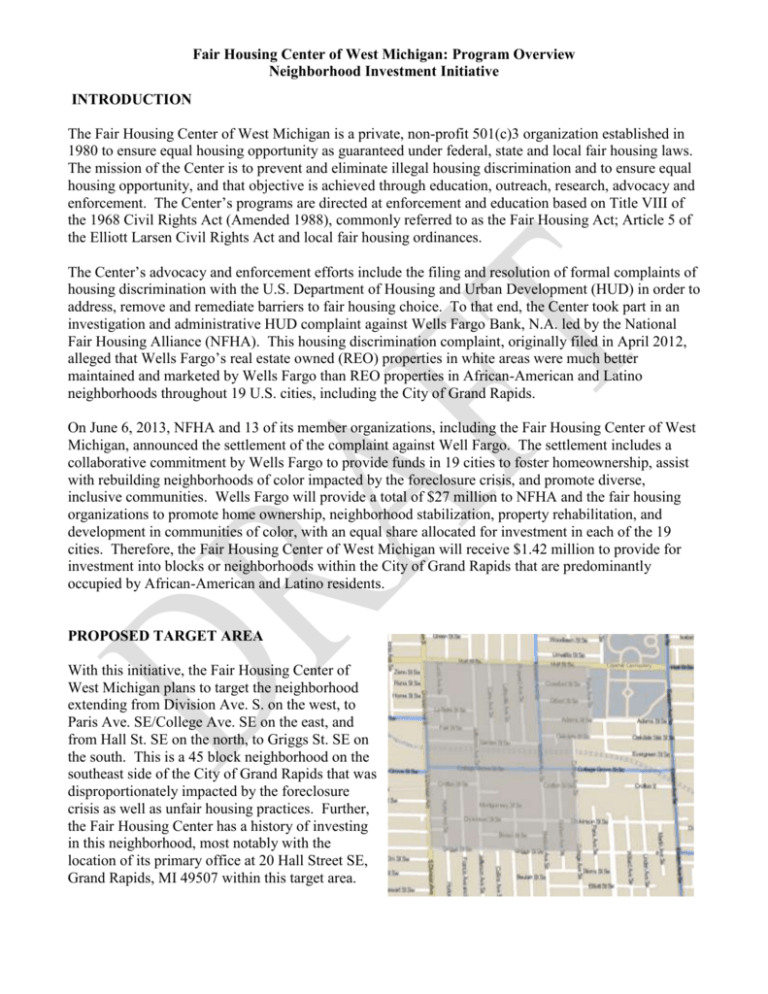
Fair Housing Center of West Michigan: Program Overview Neighborhood Investment Initiative INTRODUCTION The Fair Housing Center of West Michigan is a private, non-profit 501(c)3 organization established in 1980 to ensure equal housing opportunity as guaranteed under federal, state and local fair housing laws. The mission of the Center is to prevent and eliminate illegal housing discrimination and to ensure equal housing opportunity, and that objective is achieved through education, outreach, research, advocacy and enforcement. The Center’s programs are directed at enforcement and education based on Title VIII of the 1968 Civil Rights Act (Amended 1988), commonly referred to as the Fair Housing Act; Article 5 of the Elliott Larsen Civil Rights Act and local fair housing ordinances. The Center’s advocacy and enforcement efforts include the filing and resolution of formal complaints of housing discrimination with the U.S. Department of Housing and Urban Development (HUD) in order to address, remove and remediate barriers to fair housing choice. To that end, the Center took part in an investigation and administrative HUD complaint against Wells Fargo Bank, N.A. led by the National Fair Housing Alliance (NFHA). This housing discrimination complaint, originally filed in April 2012, alleged that Wells Fargo’s real estate owned (REO) properties in white areas were much better maintained and marketed by Wells Fargo than REO properties in African-American and Latino neighborhoods throughout 19 U.S. cities, including the City of Grand Rapids. On June 6, 2013, NFHA and 13 of its member organizations, including the Fair Housing Center of West Michigan, announced the settlement of the complaint against Well Fargo. The settlement includes a collaborative commitment by Wells Fargo to provide funds in 19 cities to foster homeownership, assist with rebuilding neighborhoods of color impacted by the foreclosure crisis, and promote diverse, inclusive communities. Wells Fargo will provide a total of $27 million to NFHA and the fair housing organizations to promote home ownership, neighborhood stabilization, property rehabilitation, and development in communities of color, with an equal share allocated for investment in each of the 19 cities. Therefore, the Fair Housing Center of West Michigan will receive $1.42 million to provide for investment into blocks or neighborhoods within the City of Grand Rapids that are predominantly occupied by African-American and Latino residents. PROPOSED TARGET AREA With this initiative, the Fair Housing Center of West Michigan plans to target the neighborhood extending from Division Ave. S. on the west, to Paris Ave. SE/College Ave. SE on the east, and from Hall St. SE on the north, to Griggs St. SE on the south. This is a 45 block neighborhood on the southeast side of the City of Grand Rapids that was disproportionately impacted by the foreclosure crisis as well as unfair housing practices. Further, the Fair Housing Center has a history of investing in this neighborhood, most notably with the location of its primary office at 20 Hall Street SE, Grand Rapids, MI 49507 within this target area. Fair Housing Center of West Michigan: Program Overview Neighborhood Investment Initiative PROGRAM OVERVIEW The Fair Housing Center of West Michigan seeks to invest in ways that will enhance housing choice and opportunity within the identified target area, specifically in the areas of neighborhood stabilization and revitalization, property rehabilitation, walkability and sustainability. The Center intends to maximize investment and impact by understanding and leveraging existing resources and opportunities within the target area, collaborating with local, service-oriented partners who have working knowledge of the target area, and enhancing existing local programs and initiatives to increase neighborhood opportunity. The Center recognizes the important and inherent relationship that housing has to parks, health care, employment, education, business, transportation, environment and other valuable community components necessary to provide a framework for sustainability and opportunity. With housing at the core, the Center seeks to invest in efforts that will strengthen and enhance the underlying framework of opportunities within the target area. Such efforts might include: housing demolition, rehabilitation, improvement and/or development; homeownership initiatives; green space/green neighborhood initiatives; educational initiatives; among others. INITIAL PROGRAM COMPONENTS Identify target area and compile community profile data including identifying existing and potential assets, resources, services, programs, gaps, needs and opportunities Identify intended outcomes and impact, with tools for measuring and reporting Establish program goals, outputs and activities Develop organizational structure for operating and delivering program, including necessary inputs Establish structure, including any committees, personnel, partners, etc. Create program/project description(s) for desired focus Design RFP process and/or other funding plans Implement funding process Fund programs and activities Measure program success and impact



